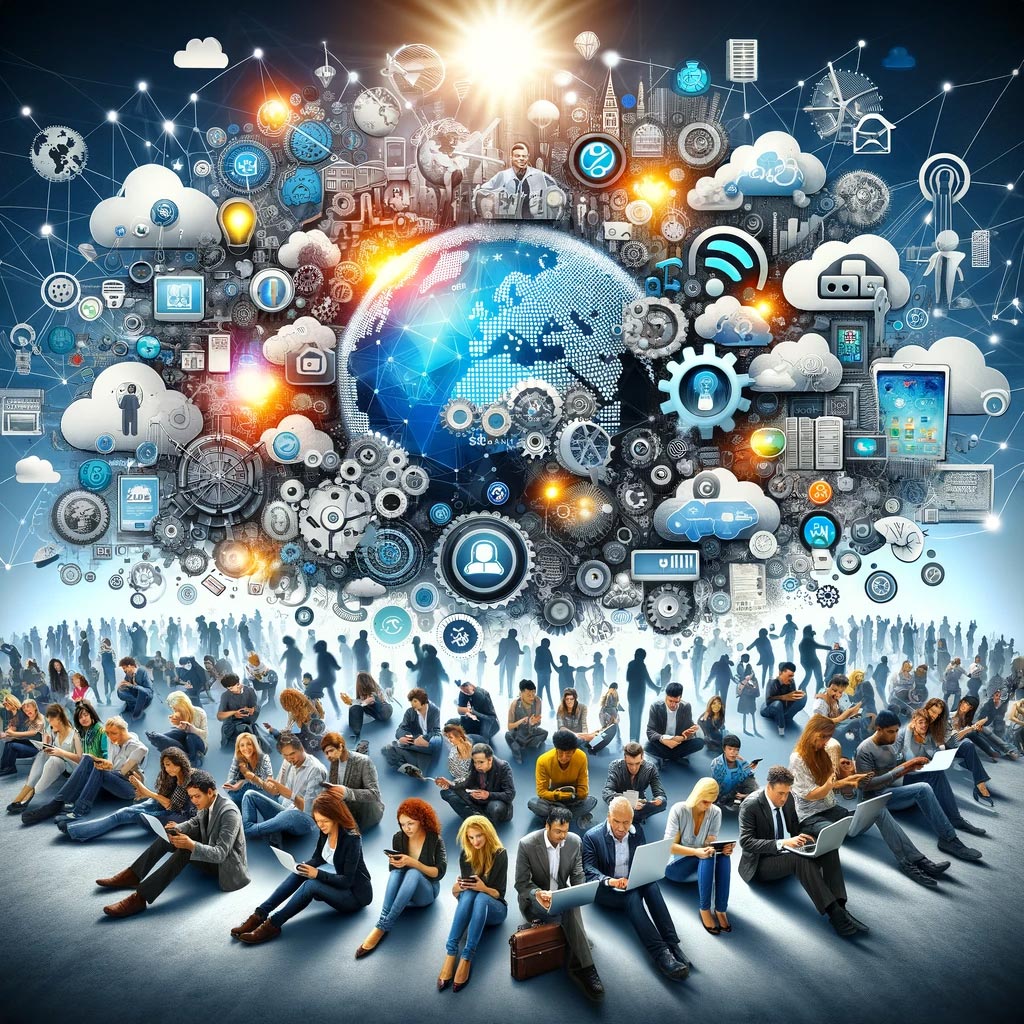
Impact of ICT on Society: Insights & Trends
In the modern era, Information and Communication Technology (ICT) has become a cornerstone of daily life, profoundly reshaping the landscape of our society. From the way we communicate to how we work, learn, and engage with our communities, the digital transformation facilitated by ICT is omnipresent. This article delves into the effects of ICT on society, offering a comprehensive overview of its impacts, trends, and the future direction of digital communication. By examining the integration of ICT across various societal domains, we aim to provide a nuanced understanding of its benefits and challenges, backed by the latest research findings and statistics.
Understanding ICT and Its Societal Impact
The Integration of ICT in Society
ICT encompasses a wide range of technologies, from the internet and wireless networks to smartphones and software, all of which enable digital communication and the processing of information in unprecedented ways. Its integration into society is multifaceted, touching on every aspect of life including education, governance, healthcare, and business. Digital platforms facilitate e-governance and digital education, revolutionizing traditional processes and making services more accessible to the public. Meanwhile, social media platforms have become central to how individuals interact, reshaping social dynamics and community engagement.
Positive Impacts of ICT
Enhanced Accessibility and Efficiency
One of the most significant benefits of ICT is its ability to bridge geographical distances and make information and services more accessible. E-governance initiatives, for example, allow citizens to access government services online, reducing the need for physical presence and thereby increasing efficiency and convenience.
Educational Transformation
Digital education platforms have democratized access to learning, enabling students from remote or underprivileged areas to access high-quality educational resources. Online courses, digital libraries, and virtual classrooms have made lifelong learning a tangible reality for millions.
Economic Growth and Innovation
ICT drives economic growth by enabling the creation of digital markets, supporting startups, and fostering innovation. It has given rise to new business models, such as the sharing economy and e-commerce, significantly impacting traditional industries and employment patterns.
Negative Impacts of ICT
Cybersecurity Risks
As society becomes increasingly dependent on digital technologies, the risks associated with cybersecurity breaches grow. Issues such as data theft, privacy violations, and cyberattacks have significant implications for individuals, organizations, and national security.
Digital Divide
Despite the advancements in ICT, a digital divide persists, exacerbating social inequalities. Those without access to digital technologies or the internet are increasingly disadvantaged, missing out on educational, economic, and social opportunities.
Social and Psychological Effects
The impact of social media and digital communication on mental health and social relationships is a growing concern. Issues such as cyberbullying, social isolation, and the erosion of privacy are significant challenges that society faces as it navigates the digital age.
Technological Advancements and Future Trends
Recent advancements in ICT, including artificial intelligence (AI), blockchain, and the Internet of Things (IoT), are set to further transform society. These technologies promise to revolutionize industries, enhance service delivery, and create new opportunities for innovation and social change. However, they also introduce new challenges, particularly concerning ethics, privacy, and the potential for increased surveillance.
Case Studies and Statistics
To illustrate the impact of ICT on society, let's consider some specific examples and statistics:
- The World Bank reports that digital technologies have lifted millions out of poverty by providing access to financial services, enhancing educational opportunities, and creating jobs.
- According to UNESCO, digital education platforms have significantly increased literacy rates and educational attainment in developing countries, offering courses that range from basic literacy to advanced degrees.
- A study published in the Journal of Cybersecurity highlights the increasing frequency and sophistication of cyberattacks, underscoring the importance of robust cybersecurity measures.
List of 30 Impacts of ICT in Society
|
Conclusion
The impact of ICT on society is profound and far-reaching, offering both incredible opportunities and significant challenges. As we navigate this digital era, it is crucial to address the issues of cybersecurity, the digital divide, and the social implications of digital technologies. By leveraging the benefits of ICT and mitigating its risks, we can ensure a future where technology serves to enhance, rather than detract from, the fabric of society. This requires a concerted effort from policymakers, educators, technologists, and the public to foster a digital society that is inclusive, secure, and beneficial for all.
Also Read:
Advantages and Disadvantages of ICT in Society
ICT Information Technology

